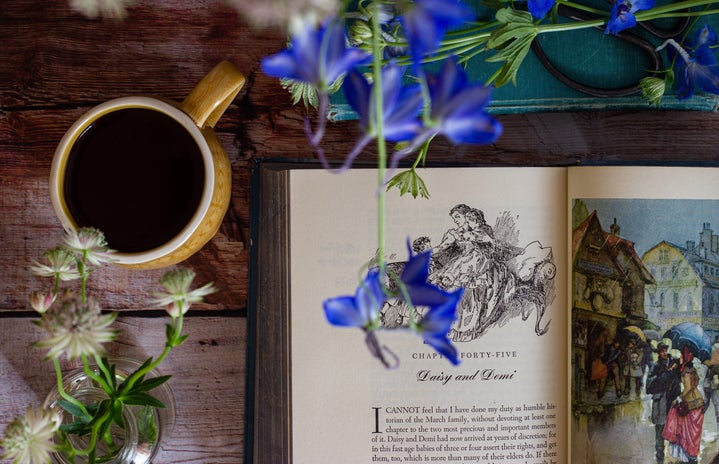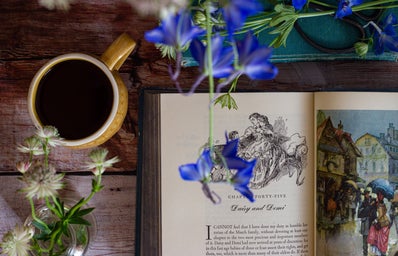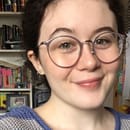This is a sign to celebrate every month like its Women’s History Month with a good book!
As you may or may not know, every March is designated as Women’s History Month in the United States. Beginning in 1982 with Women’s History Week, March is a time to learn about and celebrate the contributions that women have made to the world (especially contributions that have been forgotten and/or overlooked). Beyond just literature, it’s important for people to know about the ways in which women have contributed to the advancement of society.
With this celebration in mind, I’ve compiled here books on intersectional feminist theory, books with feminist themes, and some iconic books by women authors with incredible contributions to literary canon.
***
Why Intersectional Feminism?
The reason I’ve put such a focus on intersectional feminism, rather than just feminism, is because intersectionality should be a core component of any feminist belief. Kimberlé Crenshaw’s theory of intersectionality recognizes that the reality of our world has issues that are not so cut-and-dry as they may initially appear. The issue of feminism isn’t as simple as “women aren’t equal to men,” because this inequality is compounded by race, class, ability, sexuality, citizenship status, and so much more. Recognizing this compounding oppression, and learning about it, are the first steps towards truly combating it.
Modern Feminist Theory
Hood Feminism by Mikki Kendall
The major premise behind Kendall’s book is to highlight the faults of mainstream feminism, that is constructed to protect white women. Kendall’s essays deal with a myriad of topics, from food insecurity to racist beauty standards, hypersexualization of Black bodies, and more. It’s a fantastic introduction to intersectional feminism.
The Right to Sex by Amia Srinivasan
I have learned so much from this book, and it’s made me truly sit back and evaluate my own thoughts on various feminist issues. I honestly can’t stop talking about it. This book’s primary focus is on sex, sexuality, and the politics that interfere with both.
Feminist Themes
Educated by Tara Westover
Educated is a memoir that will probably stick with me for the rest of my life, and is something that will always make me appreciate my education more. Westover was raised by survivalist Mormons, deep in the mountains of Idaho. She was homeschooled, and oftentimes subject to physical and verbal abuse from her family. Her story is undeniably one of hope and perseverance.
Shrill: Notes from a Loud Woman by Lindy West
I knew about the television show “Shrill” on Hulu, but what I did not know was that it was loosely based on a collection of essays! Shrill is a fantastic collection, starting with more humorous ruminations that dip into serious topics like fatphobia. West transitions the second half of the book to talking about love, relationships, online trolling, and what it was like for her to simply exist as a large woman on the internet. West is funny and insightful, as well as sympathetic and vulnerable.
Circe by Madeline Miller
Circe is a beautiful re-telling of the life of the legendary sorceress, Circe, who is probably most well known for turning the men who visited her island into pigs. Miller does a fantastic job expanding on Circe’s story, creating a character who is rich with complexities, and simply longs to be loved. Be advised, this book does include depictions of assault.
I am Malala by Malala Yousafzai
Could anyone read this and not come away having fallen in love with Malala Yousafzai? She’s such an incredible human being, and I often think of her when I feel like complaining about the amount of studying or homework I have to do. I read this when I was still in high school, and I don’t think I’ll ever be able to forget it.
Pope Joan by Donna Woolfolk Cross
Pope Joan as a historical figure is regarded as a legend, but that doesn’t make the story any less intriguing. Pope Joan reminds me vaguely of the Egyptian Pharaoh, Hatshepsut, who presented herself as a male King in artwork and iconography.
Iconic Literature
The Handmaid’s Tale by Margaret Atwood
The Handmaid’s Tale is probably one of the most iconic pieces of dystopian fiction out there (although Atwood refers to it as speculative fiction), and I can definitely see why. This is a story that sticks with you, not because the events that take place are unfathomable, but just the opposite. Atwood tells this story in a nonlinear fashion, beginning with the main character, Offred, existing in the Republic of Gilead, and flashing back to the world as we know it, explaining what happened that led them to their current existence. In the new dystopian world fertile women, like Offred, are essentially used as human incubators for the wealthy upper class.
The Bell Jar by Silvia Plath
The Bell Jar is the story of a young woman, Esther Greenwood, who becomes depressed, insomniatic, and suicidal. While difficult to read at many points, this book is a tragic rumination on identity, purpose, and what it means to be a woman. Before reading, be advised that this book does depict assault, attempted suicides, and racist remarks.
The Bell Jar holds an interesting place in literary canon, partly due to its subject matter and the other part due to Plath’s suicide. The general consensus around the book is that it’s a semi-autobiographical telling of Plath’s life, and that the main character’s mental health issues may have mirrored Plath’s own. For me, this enhanced the tragedy of it all, as it felt less and less like I was reading about a fictional character, and more like a deep dive into Plath’s psyche.
Beloved by Toni Morrison
To be fair, any and all Toni Morrison books should be on here somewhere. I often compare her stories to being punched in the gut (in a good way). Beloved is a ghost story, inspired by the actions of Margaret Garner. The story is centered around an escaped enslaved woman Sethe and her daughter Denver, living in a haunted house. The ghost that haunts them is presumably Sethe’s first daughter, whom she killed in order to keep her safe from slavery. This book is a heavy exploration of slavery, mother-daughter relationships, and trauma.
Their Eyes Were Watching God by Zora Neale Hurston
Their Eyes Were Watching God is another beautiful book about a woman who just wants to be loved. The main character, Janie, spends most of her life not being able to control what happens to her. Throughout the story we see her regain that control and lose it again. While difficult to read at times, the plot demonstrates a strong female protagonist who strives for independence.
Frankenstein by Mary Shelley
I loved reading Frankenstein in high school; it was a brilliant critique of technology and human nature, and there are some very interesting analyses that can be done with the text. Mary Shelley was a literal pioneer of the science fiction genre, but somehow people seem to forget she existed. Frankenstein is the story of the crazed Dr. Victor Frankenstein, his obsession to create life, and the unforeseen consequences of his actions. I highly recommend reading this now, and then reading it again in the fall—just in time for Halloween.
Romance Novels
The Kiss Quotient (trilogy) by Helen Hoang
This trilogy of romance novels are sincerely well-written, absolutely hilarious, and feature representation of autism in adults. Each book follows a different relationship, but all stories are connected to each other in some way. Given that this series is a romance series, there are some explicit scenes throughout each book.
The Brown Sisters (trilogy) by Talia Hibbert
In Hibbert’s trilogy, each book follows a different Brown sister, Chloe Brown, Dani Brown, and Eve Brown. Each are delightful romances, stock full with loveable characters and genuine humor. While they can be read as stand-alone, it’s fun to read them as a series because each sister’s relationship (and their relationships with each other) are seen in each book. Be advised, some are more explicit than others!
The Night Circus by Erin Morgenstern
This book has been one of my favorites for 8 years; it is simply magical. Told in a non-linear fashion, and taking place over roughly twenty years between the end of the 1800s and the beginning of the 1900s, the book details a competition between two of the greatest magicians of their time. This book is spellbinding, and beautifully romantic.
The Song of Achilles by Madeline Miller
I’m sure you’ve all seen this book making the rounds on BookTok, but I had to plug it here again. Madeline Miller is like the adult-oriented Rick Riordan, bringing the stories of Greek Mythology back into the mainstream yet-again. This book follows the beautiful (and tragic) love story between Achilles and Patroclus, and while it had a bit of a slow start for me once I was into it, I couldn’t put it down.
Where to Get More Recommendations?
Beyond the list gathered here, you can find intersectional feminist literature recommendations at the Noname Book Club, the New York Public Library, and Disorient, an online resource “for intersectional thought, education, and activism.”
***
I hope you had a very happy Women’s History Month, and find that these books are both entertaining and educational. Remember, feminism is for everybody, and these books are just one way for you to celebrate!


